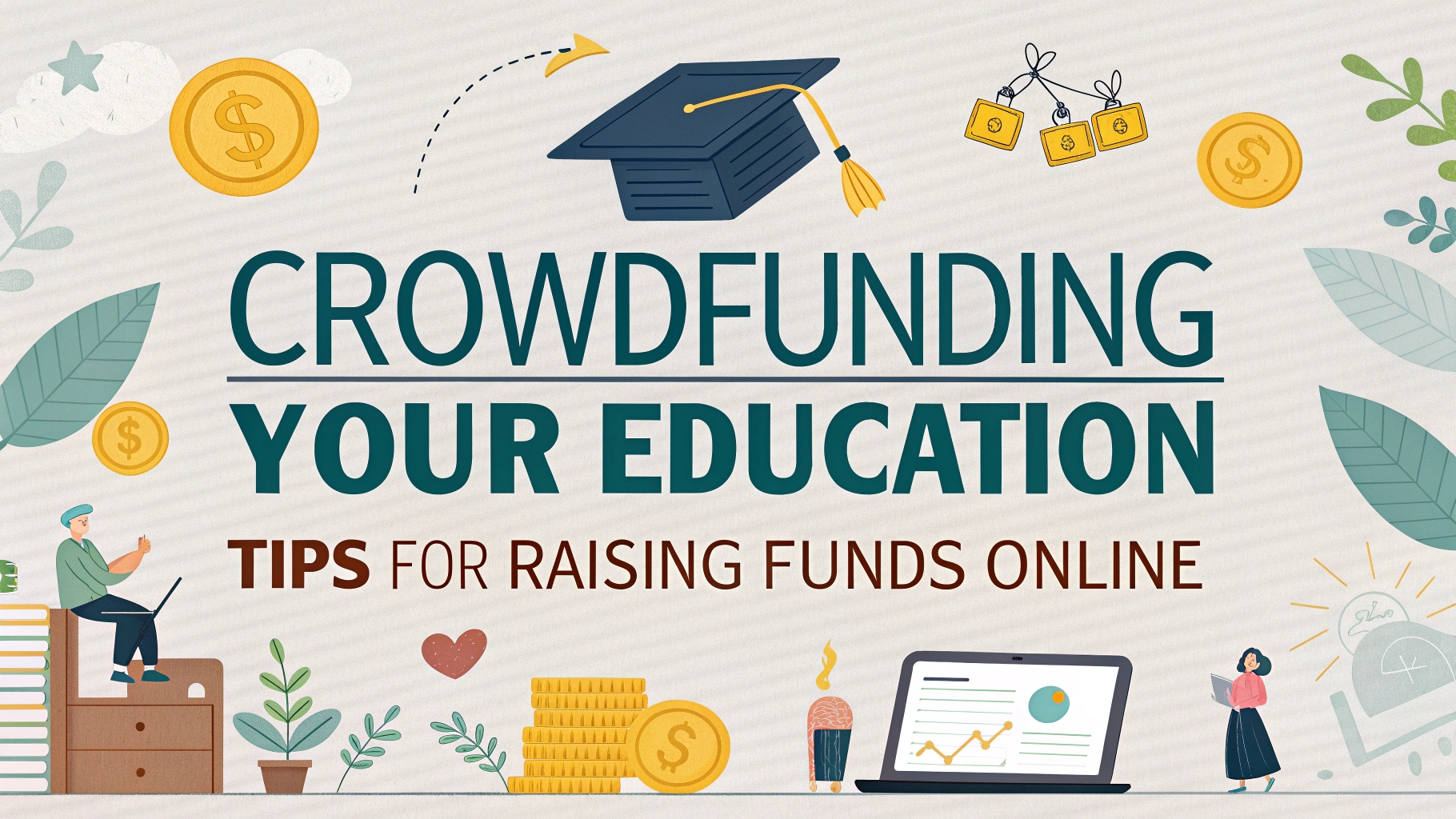Crowdfunding Your Education: Tips for Raising Funds Online

Funding your education can be a significant challenge, especially with rising tuition fees, living expenses, and additional costs like books and technology. While scholarships, grants, and loans are common avenues, an increasingly popular alternative is crowdfunding — raising money online through platforms that connect you with friends, family, and even strangers who want to support your educational journey.
If you’re considering crowdfunding your education, this guide will walk you through everything you need to know to create a successful campaign and reach your funding goals.
What Is Crowdfunding?
Crowdfunding is a way to raise small amounts of money from a large number of people, usually via the internet. Instead of borrowing money or taking on debt, you create a campaign telling your story, setting a funding goal, and sharing it through social media, email, and other networks.
Popular platforms like GoFundMe, Kickstarter, Indiegogo, and specialized education crowdfunding sites like ScholarMatch or FundMyTravel offer you the tools to reach potential donors anywhere in the world.
Why Crowdfund Your Education?
-
Access to Funds Without Debt: Unlike loans, crowdfunding doesn’t require repayment, which means no interest or monthly installments after you graduate.
-
Community Support: It’s a chance to build a network of supporters who care about your success and want to help you.
-
Flexibility: You can raise funds for tuition, books, laptops, travel expenses, or any other educational needs.
-
Visibility: Crowdfunding can increase your exposure, which may lead to other opportunities such as internships, mentorships, or sponsorships.
Step 1: Plan Your Campaign Thoroughly
Before launching, plan your campaign carefully. Consider these key elements:
Set a Realistic Goal
Calculate how much money you actually need, including tuition, accommodation, books, and any other expenses. Don’t forget platform fees and transaction charges when setting your target.
Choose the Right Platform
Each crowdfunding site has different features, fees, and audience reach. For educational funding, platforms like GoFundMe are popular due to their simplicity and wide reach. Research and select the one best suited for your campaign.
Create a Timeline
Decide how long you want your campaign to run. Most campaigns run between 30 to 60 days to maintain momentum and urgency.
Step 2: Tell Your Story Effectively
Your story is the heart of your campaign. It should be authentic, clear, and compelling.
Share Your Background
Explain who you are, what you’re studying, and why education is important to you. Share your dreams and goals — what motivates you to succeed?
Explain Your Financial Need
Be transparent about why you need help. Don’t be afraid to share your struggles, but also highlight your commitment and efforts to fund your education through part-time work, scholarships, or other means.
Use Engaging Visuals
Photos and videos increase engagement significantly. Consider making a short video introducing yourself, explaining your situation, and thanking donors in advance.
Step 3: Promote Your Campaign Widely
Even the best campaign won’t succeed if no one sees it. Use these strategies to get the word out:
Leverage Social Media
Share your campaign on Facebook, Twitter, Instagram, LinkedIn, and any other platforms where you have friends or followers. Post updates regularly to keep people engaged.
Reach Out Personally
Send direct messages or emails to close friends, family, teachers, and community members. Personalized requests often lead to more donations than general posts.
Ask Supporters to Share
Encourage your donors and supporters to share your campaign with their networks. The more eyes on your story, the better your chances.
Step 4: Keep Your Supporters Updated
Maintaining communication throughout your campaign is crucial.
-
Post Regular Updates: Share milestones, like reaching 25%, 50%, or 75% of your goal.
-
Thank Donors Publicly: Acknowledge contributions publicly (with permission) to show appreciation and encourage others.
-
Share How Funds Are Used: Transparency builds trust. Tell donors how their money is making a difference, whether it’s paying tuition, buying textbooks, or covering living expenses.
Step 5: Show Gratitude and Follow Up
After your campaign ends, thank every donor personally. Sending a personalized message, email, or even a handwritten note can leave a lasting impression and maintain relationships for future support or networking.
Also, share your academic progress and achievements with your supporters. Many people love to hear success stories that their contributions helped make possible.
Additional Tips for a Successful Campaign
Be Honest and Transparent
Trust is key in crowdfunding. Be honest about your needs and how the funds will be spent. Avoid exaggerating or making unrealistic promises.
Keep Your Campaign Positive and Hopeful
While it’s okay to share struggles, focus on hope, determination, and your commitment to education. Positive energy attracts donors.
Offer Rewards or Incentives
Though not always necessary, small rewards can motivate donors. These could be shout-outs on social media, thank-you videos, or handmade crafts if you’re creative.
Engage Local Communities and Organizations
Reach out to local businesses, community groups, or educational institutions that might want to support your cause through donations or sponsorship.
Potential Challenges and How to Overcome Them
-
Campaign Fatigue: Don’t overwhelm your network with constant requests. Balance your promotion with genuine updates and gratitude.
-
Slow Start: Early momentum is crucial. Ask close friends and family to donate early to build credibility and encourage others.
-
Negative Feedback: Some people may criticize crowdfunding as "begging." Remember, it’s a legitimate way to seek support, and many people want to help if you present your case sincerely.
Final Thoughts
Crowdfunding your education can be a powerful way to overcome financial barriers and achieve your academic dreams. With careful planning, a compelling story, and consistent effort, you can build a supportive community around your goals.
Remember, crowdfunding is not just about raising money; it’s also about sharing your journey, building relationships, and inspiring others. Approach it with honesty, gratitude, and determination — and you may be surprised by the generosity and encouragement you receive.
Good luck on your educational journey and crowdfunding campaign!